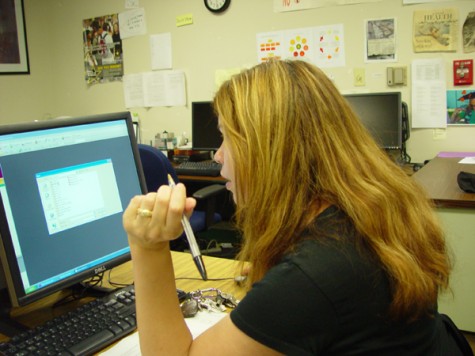When thinking of track and field, most conjure up the image of running. It’s more than that.
“Everyone thinks you go out there and just run,” Coach Eddie Lopez said. “The competition is tough.” Track and field is a demanding sport. Long distance runners run 70 to 80 miles a week. Athletes train daily year around conditioning for the track season.
“We are very demanding,” Lopez said.
Lopez refers to his athletes as “kids.” As the head coach of both the men’s and women’s team, he not only tinkers with budgets and numbers, but life as well.
“You have to know how their lifestyle is at home. If they have money for the bus. Did they eat breakfast, lunch or dinner? Did they fight with their girlfriend?” Lopez said. All can serve as distractions to any student athlete. “I tell them once they get in the tunnel they have to able to get rid of all that and enjoy the workouts.”
The Glendale coaching staff recruits 3/4 of the men’s track team. They encourage student athletes to come to Glendale to develop their skills and work on getting a scholarship. “The investment is long term not short term.” Lopez said, “(If) you develop you’re going to get more money.”
With currently 30 men on the team coach Lopez and his assistant coaches work together to give each player the time needed to succeed. “Chemistry is so important. We make sure the coaches are on the same page with each other and with the athletes. That’s how you make a team,” Lopez said.
Sophomore and team captain Ricky Avila said trust between the coaches and the athlete is essential. “Coach Lopez knows how to push but not too much. He’s worked with some of the best and I fully trust Lopez and what he’s doing.”
Avila acknowledges that chemistry is important too and stressed that supporting each other is necessary for teamwork. “We should always be cheering each other or it just becomes an individual sport. We always try and go support each other even when we are not in an event,” Avila said.
On Feb. 19 at the Pomona Pitzer’s all-comers meet, Lopez said the men’s 4-by-100 meter relay ran well. “They had one of the fastest times 42.89.” The team supports each other. “There was no one complaining Saturday. It started raining. I told them to go on the bus, but the majority of them stayed to watch the relay in the rain,” Lopez said.
“Student comes before the athlete,” Avila said. The track and field athletes take classes together, host study groups and hang out after practice. “We help each other mature in school and track,” Avila said.
It’s still early in the men’s track season with only one meet under their belt coach Lopez is optimistic. “They are getting good. This is probably the best start we’ve had,” Lopez said.

